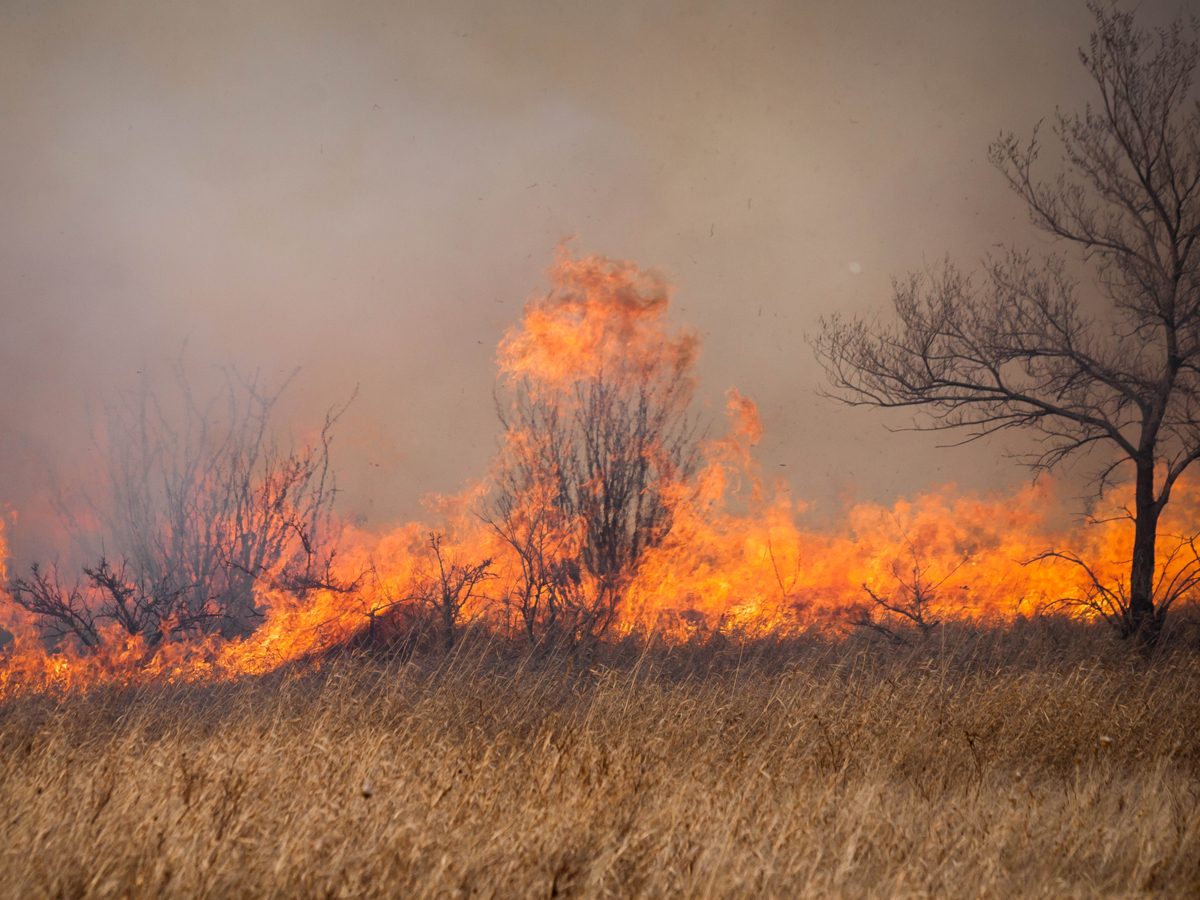Should We Expect More Wildfires in Canada This Year?
We ask Karen Hodges, University of British Columbia ecologist, about what we can expect in the coming fire season.

Reader’s Digest Canada: The 2019 fire season in Canada was, relatively speaking, a quiet one—at least in B.C. Might that be a good sign for this year?
Karen Hodges: Unfortunately, no. To make predictions on the coming fire season, forecasters look at things like available fuel (dead wood), snowfall in the winter and how quickly it gets hot in the spring. These factors vary annually, so while it’s true that last year was less dramatic in Canada, that doesn’t mean anything for this summer.
However, when it comes to longer-term patterns, if you look at the last 50 years in Canada and around the world, we’re seeing a greater number of fires, and they’re more severe. Mega fires—the ones that burn more than 10,000 hectares—used to be the exception, but that is no longer the case.
Why is that?
The most significant factor is climate change. The kind of prolonged hot weather we’re now seeing creates the flammable conditions—dry vegetation and soil—in which fires can thrive. Also, the vast majority of naturally started fires are caused by lightning storms, which increase in higher temperatures.
What are some common causes of blazes started by us?
The most frequent ones are sparks from power tools, improperly discarded cigarette butts and leaving a campfire burning. Then there is the fact that more humans are living in parts of nature where they didn’t before. The wildfires in California are a good example of that—new homes there are surrounded by extremely flammable conditions.
Is that nature’s way of telling humans to stand down?
Well, no, but it is an example of the challenges of balancing our activity with the will of Mother Nature. In North America we have this misconception that all fires need to be fought, when in fact fires play an important role in regeneration for most ecosystems. A few decades of fire suppression has fostered thicker forest growth, more trees and, therefore, more connected fuel. So now, if a fire starts anywhere it’s going to burn through everything. This is another key factor in why large wildfires are the new norm.
How can I prepare if I’m heading out into the bush this summer?
Carry water and a shovel so that if something does spark, you’d have a chance of putting it out. Have an alternative exit plan, particularly if you’re camping at a dead end. The other thing—and this can be hard because a lot of people seek out nature to unplug—is that it’s a good idea to bring a cell phone or radio so that you have a way of learning about any impending danger.
Any other dangers to be aware of?
Smoke is a big problem because it carries super-fine particulates (soot and gases) that are hard for our lungs to clear. These days, we are witnessing a lot of smoke that persists in regions for months—and travels the planet. I live in Kelowna, and there were weeks in 2017 and 2018 when our air was worse than that of New Delhi and Shanghai.
I heard smoke from the B.C. fires made it all the way to New York City.
I believe it. In B.C. we got a bunch of Siberian smoke. We’re talking hundreds to thousands of kilometres.
Next, read our expert interview answering the question: what can I really do about the climate crisis?



